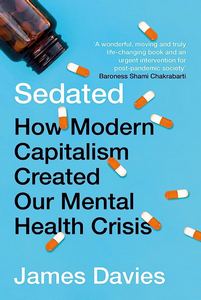Book reviews – Crossly & Miles, Davies, Huggon
Jesus: A Life in Class Conflict. By James Crossley and Robert J. Myles. Zeo Books, 2023
This book takes a materialist approach to the emergence of the Jesus movement, informed by contemporary texts and archaeological findings. It uses critical historical imagination through a lens of Eric Hobsbawm’s ideas on banditry as a form of pre-political (and pre-capitalist) form of peasant resistance. They provocatively describe the Apostles as a sort of politburo to this millenarian movement. They defend their category of peasantry as being appropriate for the economic conditions of the time, and against notions that fishermen and carpenters would be of some sort of relatively privileged class.
They paint a picture of the Jesus movement as an itinerant band with a ‘mission to the rich’. This is evidenced by the Gospel sentiment ‘I have come to call sinners’. The itinerant band was thus supported by wealthy individuals donating to their movement in a form of atonement. The group itself preached that ‘he who is last shall be first’ and a time would come when the wealthy sinners would be overthrown, and the world rid of landlords, tax collectors and unjust kings. The Jesus movement would then rule.
Certainly, as Norman Cohn noted in his book The Pursuit of the Millennium, that was an ideology read into the Gospels repeatedly throughout the Middle Ages as peasant movements led by Beggar Kings and the occasional pseudo-Baldwin would rise up with the promise of the end of work and that landlords, priests and usurers would be put to the righteous sword. ‘A dictatorship serving the interests of the peasantry’ as Crossley and Myles term it.
They trace the material source of this movement to the upheaval in first-century Galilee. Households were being broken up by elite building projects in urban centres. Antipas was the ruler of Galilee at the time, and he was responsible for rebuilding the town of Sepphoris (which had recently been razed by the Romans after it was seized by rebel bandits) and the town of Tiberius. Such building involved taxing peasants, clearing them from the land and drawing labour from the countryside to the city coupled with unemployment when the project was complete. They note that Jesus’ reputation as a carpenter means he was more broadly a builder, and he may have been involved in such building projects.
Amidst such dislocation, then, the Jesus movement was socially conservative, with hardline views on promiscuity and marriage, and it looked to the restoration and observance of a peasant version of the Jewish law (the authors present an intriguing reading of the parable of the good Samaritan as being about purity laws rather than the goodness of the cultural Other in the form of the Samaritan).
Crossley and Myles suggest that this itinerant band, preaching repentance to the wealthy became a form of family in itself, to give stability in a time of trouble. It also may have spent most of its time in the rural parts of Galilee, avoiding such cities as Sepphoris and Tiberius (which might account for any absence of any contemporary textual accounts, other than a couple of mentions in Josephus’ Antiquities). When the Jesus group went to Jerusalem during the Passover festival, it would seem their disruption in the temple was, by this account, as much a stand against idolatry and profaning of the Temple (such as with the erection of a Roman eagle at the Temple gate, or with issues around the symbolism on some of the money used there) as it was about the exploitation and avarice of the moneylenders themselves.
Disruption of the Temple during Passover would not have escaped the notice of the authorities, and it seems there is sufficient textual evidence in the record that Jesus was tried and executed as a bandit/rebel for these actions. As is often noted, given the shameful character of crucifixion, the early Jesus movement would be unlikely to make up such a fate for their leader, suggesting that it was such a known and established fact that they had to stick with it.
A major plank of the argument is around the word ‘sinners’ which the authors argue should be read as a reference first and foremost to the wealthy, but more broadly those without the Jewish law, which would also include foreigners. This mission to the rich sinners also therefore could become a mission to non-Jewish people. This provides a plausible explanation for the ability of the ideas of the Jesus movement to spread on a cross-class basis throughout the Roman empire, gradually losing its regional specificity. Hence why the early movement had to grapple with issues such as observance of the Jewish law.
The chief sources remain the Gospels, however, and the authors spend a lot of time noting the discrepancies between the various accounts, and showing how passages were added to the account that might be influenced by the needs of the movement as it developed and in a sort of dialogue with previous Gospels to overcome barriers: Joseph of Arimathea moves from being a member of the Sanhedrin to being a wealthy follower of Jesus, in order to overcome changes of the account of the role of that body in Jesus’s execution.
All of the extant texts are from after the time of Jesus’s ministry, and the writers show the legend growing with younger texts being more elaborate. They note there is a notional ‘Q’ text that was the original source material of three of the Gospels. The bare bones of the story is that there was a group preaching around the first century, practising baptism and calling ‘sinners’ to repentance, and that their apparent leader was betrayed and executed.
This is a plausible and interesting account of the growth of the Jesus movement that does not rely on a miraculous nor charismatic leader, but looks to the social conflicts of the first-century Near East. Although some of its arguments rest on a certain amount of philological knowledge (such as the meaning of the word ‘sinners’) it is largely accessible and a pleasurable read.
P.S.
Sedated: How Modern Capitalism Created Our Mental Health Crisis. By James Davies. Atlantic £10.99.
The basic argument here is that the treatment of mental illness has been medicalised and depoliticised, meaning it has come to be regarded as a problem involving the individual concerned, rather than being part of a wider social situation. Consequently it has been addressed via increased prescription of medication, not by means of talking therapy or sociopolitical changes. This is to some degree due to the lobbying and influence of the pharmaceutical industry (drugs companies such as Pfizer). They aggressively advertise their products and even develop the patient questionnaires that GPs use to diagnose depression.
More generally, though, Davies sees it as part of a wider societal development, that of ‘new capitalism’, neoliberalism, based on deregulation of companies and a regulatory system that is closely linked to those it is allegedly controlling. Depression and anxiety supposedly cost the UK economy £12bn each year in lost productivity and incapacity benefits; this figure is from 2005, so the amount is presumably higher now. Reforming the benefit system and getting people into work was seen as vital, hence workfare and sanctions on the unemployed. Not having a job was regarded as some kind of psychological deficit, rather than being related to the ups and downs of the capitalist economy, just as problems at work were viewed as resulting from individual attitudes and difficulties, not the boring and often pointless nature of the job. The Labour government introduced a programme named Improving Access to Psychological Therapies (IAPT), but this had far less impact than claimed, with at most one person in five recovering as a result of it. In 2015 it was announced that IAPT workers would be placed in job centres.
There has been a vast increase in recent years in the prescription of antidepressants. This applies in many countries, including the UK, where the number rose from 25 million prescriptions a year in 2002 to 75 million in 2020. This has not led to an improvement in people’s mental health: far from it, as mental health disabilities have risen massively since the 1980s. When taken over the long term, many psychiatric drugs can be harmful, and it can in fact be more helpful to stop taking the drugs, even for the severely ill. Some research suggests that long-term antidepressant use can increase the risk of a person becoming depressed for life. A recent report (BBC Online, 19 June) revealed that in England two million people have been taking antidepressants for five years, despite limited evidence that a course of treatment of that length has overall benefits.
Davies notes that higher rates of prescribing psychiatric drugs occur in the poorest areas of the UK, and refers to the work of Wilkinson and Pickett (The Spirit Level, The Inner Level), which shows that there is more mental illness where there is greater inequality. He presents a powerful and convincing picture of how capitalism defines and treats mental health problems, meaning it avoids having to confront the real causes.
PB
Speakers’ Corner Anthology. Edited by Jim Huggon. Union of Egoists. 2022.
This is a republication (with a new, additional Foreword) of an anthology first published in 1977. It is a collection of excerpts and other written material connected to Hyde Park’s Speakers’ Corner and there are several references to the SPGB scattered throughout. Jim Huggon is an anarchist who spoke regularly there from 1965 to 1983. He refers to a review by the Socialist Standard of the original version which has slightly puzzled us as it appears that no such review was ever published.
The collection also includes a knockabout piece by Harry Young (Horatio) called ‘On the Platform’ and originally published in the Seventieth Anniversary edition of the Standard in June 1974. There are excerpts too from famous Speakers’ Corner regular Bonar Thompson’s book, Hyde Park Orator, which has also recently been republished with added illustrations.
In addition, there is an interesting if rather pious excerpt from a piece by Lord Donald Soper about his time as an outdoor orator (more focused on Tower Hill than Hyde Park). This is interesting as he tells of encounters with a variety of other regular speakers and his relationship with them, without actually naming them. In particular, he writes of his conversations with a well-known Tower Hill personality and that this man was a scientific socialist, ‘breathing fire and slaughter against all religion, sneering at morality [and] despising the consolations of faith’ who turned out to be much warmer privately than his public persona had initially indicated. Given Soper’s detailed description of him it is highly likely that this was Harry Martin, a regular speaker at Tower Hill and who had left the SPGB in 1911 to found the Socialist Propaganda League (see ‘Getting Splinters’, in the June 2004 Centenary Edition of the Socialist Standard).
Tower Hill no longer exists as a speaking station and Speakers’ Corner at Hyde Park is a shadow of its former self, these days a veritable bear garden aimed at tourists with very few serious speakers. This anthology helps capture the spirit of an earlier age.
DAP
Next article: 50 Years Ago – Floating to nowhere – the currency chaos ➤
2 Replies to “Book reviews – Crossly & Miles, Davies, Huggon”
Leave a Reply
You must be logged in to post a comment.

 The Jesus movement
The Jesus movement Take the Tablets
Take the Tablets Speaking Out
Speaking Out
The review of Huggon’s book appeared in the June 1977 issue of the Socialist Standard:
https://socialiststandardmyspace.blogspot.com/2015/05/holding-forth.html
You are right. Apologies. The original review is even on our website here:
https://www.worldsocialism.org/spgb/socialist-standard/1977/1970s/no-874-june-1977/book-review-speakers-corner-anthology/